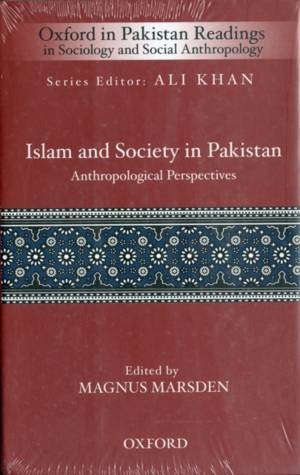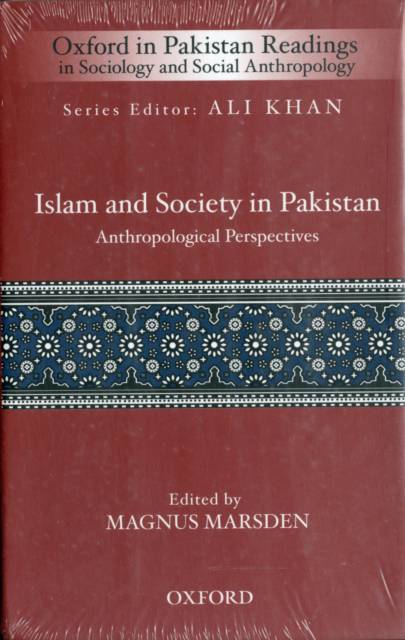
Door een staking bij bpost kan je online bestelling op dit moment iets langer onderweg zijn dan voorzien. Dringend iets nodig? Onze winkels ontvangen jou met open armen!
- Afhalen na 1 uur in een winkel met voorraad
- Gratis thuislevering in België vanaf € 30
- Ruim aanbod met 7 miljoen producten
Door een staking bij bpost kan je online bestelling op dit moment iets langer onderweg zijn dan voorzien. Dringend iets nodig? Onze winkels ontvangen jou met open armen!
- Afhalen na 1 uur in een winkel met voorraad
- Gratis thuislevering in België vanaf € 30
- Ruim aanbod met 7 miljoen producten
Zoeken
Omschrijving
There is, of course, a long and important tradition of anthropological scholarship on Islam in Pakistan. Recent international events, moreover, have brought the analysis of Islam's place in Pakistani politics and society to the forefront of global debates about the state of the Muslim world. Whilst the expansion of ethnographic studies of Muslim everyday life in Pakistan is a welcome development in anthropological work on the country, the current focus on Islam in Pakistan also raises important problems. Above all else, there is a danger of Islam becoming a gate-keeping concept, leading to the assumption that the study of Islam and Pakistan are one and the same. By addressing the diversity and complexity of the Islamic tradition in contemporary Pakistan and seeking to analyse this diversity from very different theoretical angles, the chapters in this book emphasise the multi-dimensionality of the varying ways in which Islam is an important part of the everyday life of Pakistani Muslims. The authors explore the vitality of Islam as a religious tradition in Pakistan both from the perspective of in-depth ethnographic fieldwork and historical research. They bring together ethnographic material from each of the country's five major provinces, as well as from a very a wide spectrum of social settings within these, ranging from those of major cities to small towns and remote villages. In addition, several chapters have been included that are not anthropological in the strictest sense; these chapters provide the wider political and historical contexts within which many field-based studies of Muslim life in Pakistan have been framed, including, for example, the high-politics of sectarian violence and the colonial and postcolonial history of madrassah reform.
Specificaties
Betrokkenen
- Auteur(s):
- Uitgeverij:
Inhoud
- Aantal bladzijden:
- 500
- Taal:
- Engels
- Reeks:
Eigenschappen
- Productcode (EAN):
- 9780195479577
- Verschijningsdatum:
- 12/01/2012
- Uitvoering:
- Hardcover
- Formaat:
- Genaaid
- Afmetingen:
- 150 mm x 226 mm
- Gewicht:
- 757 g

Alleen bij Standaard Boekhandel
+ 62 punten op je klantenkaart van Standaard Boekhandel
Beoordelingen
We publiceren alleen reviews die voldoen aan de voorwaarden voor reviews. Bekijk onze voorwaarden voor reviews.











